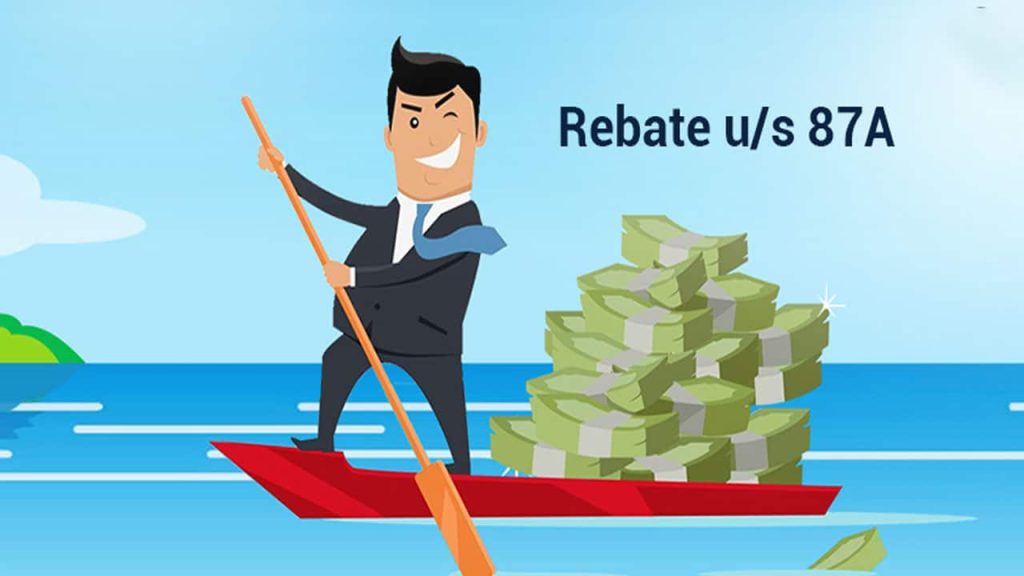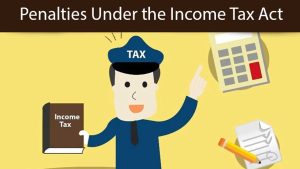Section 87a – The main obligation of any government is to protect the civilians of its country, and the Government of India has been working actively towards that goal. In order to assist the government to satisfy such a vision nicely, we are obligated to pay taxes on their income. Taxes enable the nation to construct the country’s infrastructure. That being said, the Indian tax act also requires a number of laws to decrease taxable income, and Section 87a of the Online Income Tax, 1961, is one of the few regulations. The income tax rebate supplied for in 87a is provided to individuals that have an income under the predefined threshold. Practically, this act is designed to reduce the tax burden on people with lower salaries.

The income tax rebate under Section 87a provides several relaxations to taxpayers that fit within the 10% tax threshold. Any individual for whom the annual net income is not much more than Rs.5 Lakh shall be liable to claim a tax rebate under Section 87a of the Income Tax Act, 1961. This means that a person can receive a tax rebate of up to Rs.2,000. In this manner, the exemption will be Rs.2000 or 100% of the person’s salary, whichever one is lower.
The income tax rebate in Section 87a is provided just to individuals, not to the individuals of HUF, BOI/AOP, Company or Firm. In addition, the actual number of the rebate must not be greater than the amount of income tax computed well before deduction from the total income of the individual to whom it’ll be prosecuted for the AY.
Things to remember – Section 87a
The important things to remember about this section are.
- Section 87a is introduced to the Income Tax Act, 1961 for improvement and shall apply from 1 April of the FY. This Act shall apply to the year of tax assessment and subsequent years of tax assessment.
- Non-residential Indians really aren’t qualified to access the advantages of such a tax rebate. Indian residents are indeed qualified to make use of this form of tax deduction benefit.
- Both female and male assess may profit from this tax rebate.
- Super senior citizens are still not qualified to receive a tax rebate under this section.
- Section 87a also constrains the tax rebate to the overall income payable if it is below Rs. 2 thousand.
How to claim Section 87a
A person whose yearly income is less than Rs.5 Lakh and whose tax liability is higher than Rs.2 000 is qualified to receive a rebate of income tax under Section 87a. It can be accomplished at the period of the filing of the ITR and instantaneously after the completion of higher and secondary education cess or education cess.
Eligibility Requirements for the Claim of Income Tax Rebate under Section 87a
A tax rebate may be claimed under this section of the Income Tax Act if it fulfils the following criteria.
- One has to be an Indian citizen.
- The total income of the person subtracting the deductions (as defined in Section 80) should be equivalent to or below Rs.5 Lakhs.
- The income tax rebate may be up to Rs. 12, 500. In that same manner, if a person pays income tax lower than Rs.12, 500, the amount will be credited under this section. This income tax rebate is implemented to the total tax well before Cess on education is added (4%).
Explanations of the rebate permitted under Section 87a to persons who’ve been residents and to senior citizens are given below:
| Total Annual Income | Rebate Under Section 87a | Tax Payable before Cess | Tax Payable +4% Cess |
| 2,70,000 | 1,000 | 1,000 | 0 |
| 3,60,000 | 3,000 | 3,000 | 0 |
| 5,40,000 | 0 | 20,500 | 21,320 |
| 12,00,000 | 0 | 1,72,500 | 1,79,400 |



